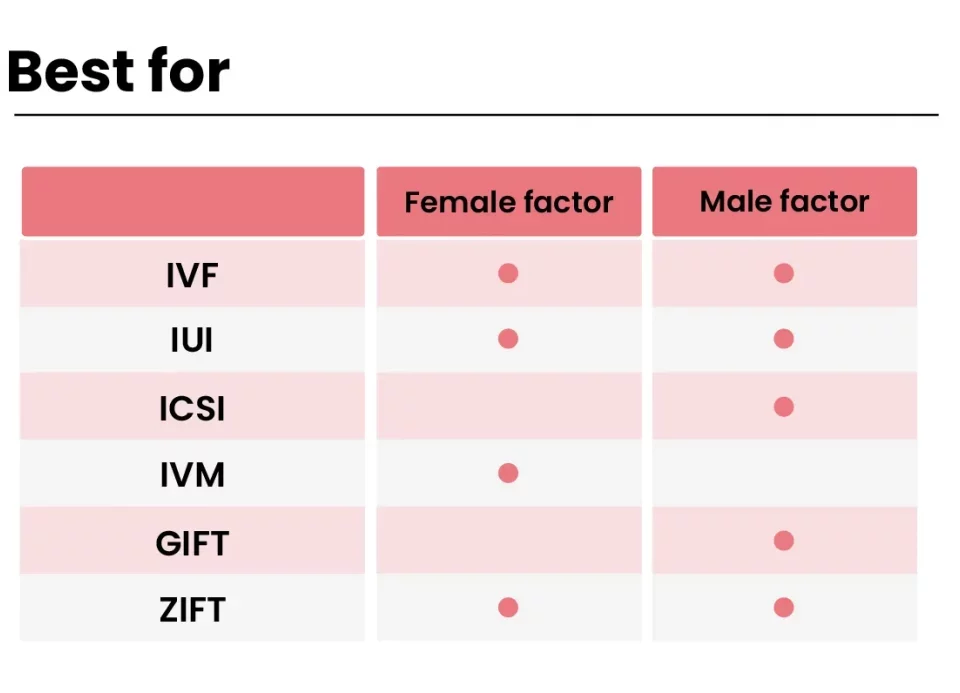
What to Do After IVF Transfer: Your Ultimate Guide to Boosting Success
April 13, 2025
How Many Embryos Are Implanted in IVF?
April 14, 2025Does Donald Trump Support IVF?
Does Donald Trump Support IVF?
In vitro fertilization (IVF) has become a hot topic in recent years, especially as families across the U.S. face challenges with infertility. It’s a deeply personal issue for many, and with political figures weighing in, people want to know where their leaders stand. One name that keeps popping up in this conversation is Donald Trump. As the 45th and 47th president, his views carry weight—especially for those hoping to see more support for fertility treatments. So, does Donald Trump support IVF? Let’s dive into his statements, actions, and what they mean for families like yours.
Trump’s Public Stance on IVF: What He’s Said
Donald Trump has made several public comments about IVF, especially during his 2024 campaign and into his second term in 2025. At a Women’s History Month event in March 2025, he famously dubbed himself the “fertilization president.” It was a quirky moment that got people talking, but behind the nickname was a clear message: he’s on board with IVF.
Back in October 2024, while campaigning, Trump called himself the “father of IVF” during a Fox News town hall. He shared a story about learning what IVF was after a call from Alabama Senator Katie Britt, who alerted him to a state court ruling that shook up fertility clinics. Trump said, “I understood it in about two minutes,” and from then on, he’s been vocal about supporting it. He even posted on Truth Social, saying he “strongly supports the availability of IVF for couples who are trying to have a precious baby.” That’s a pretty straightforward yes, right?
But words are one thing—actions are another. Let’s look at what he’s actually done to back up his talk.
Actions Speak Louder: Trump’s IVF Policies
Trump hasn’t just been chatting about IVF—he’s taken steps to show he means it. In February 2025, just a month into his second term, he signed an executive order aimed at making IVF more affordable and accessible. The order didn’t lay out a full plan (it’s more of a “let’s figure this out” directive), but it told his team to come up with ideas to cut costs and protect access. IVF can run between $12,000 and $25,000 per cycle, so this was music to the ears of hopeful parents struggling to foot the bill.
During his campaign, Trump also floated a bold idea: having the government or insurance companies cover IVF costs. In an NBC interview, he said he’d support public funding or a mandate for insurers to pay for it. That’s a big promise, and it’s got people wondering how it’ll play out—especially since Republicans have historically been hesitant about government spending on healthcare.
So, on paper, Trump’s all in for IVF. But there’s more to the story. His party, his base, and the bigger political landscape add layers we can’t ignore.
The Republican Party Puzzle: Where Does Trump Fit?
Here’s where things get tricky. Trump says he supports IVF, but the Republican Party isn’t always on the same page. Some conservatives cheer for IVF because it helps families grow—super pro-family, right? But others, especially religious groups, worry about the ethics. IVF often involves creating multiple embryos, and not all of them get used. For folks who believe life starts at fertilization, that’s a tough pill to swallow.
Take the Alabama Supreme Court ruling in 2024. It said frozen embryos are legally “children,” causing a ripple effect that paused IVF services at some clinics. Trump jumped in quick, urging Alabama lawmakers to fix it so-brown sugar and keep IVF alive. He didn’t like seeing clinics shut down, and his response showed he’s got a practical side—he wants those “precious babies” to keep coming.
But not all Republicans agree. In 2024, Senate Democrats pushed the Right to IVF Act, a bill to protect and expand IVF access. It failed—twice—mostly along party lines, with many Republicans voting no. Why? Some say it’s because the bill included stuff beyond IVF, like broader reproductive rights, that conservatives didn’t like. Trump’s fans on X have pointed this out, arguing he’s more pro-IVF than the party line suggests.
So, Trump’s in a bit of a balancing act. He’s pushing IVF while trying not to ruffle too many feathers in his base. Can he pull it off?
Why IVF Matters to Americans
IVF isn’t just a political football—it’s a lifeline for millions. About 1 in 8 couples in the U.S. struggle with infertility, according to the CDC. For them, IVF offers hope when nature isn’t cooperating. In 2018, it helped bring 2% of all U.S. babies into the world—a small but growing number.
The catch? It’s crazy expensive, and insurance coverage is spotty. A 2023 study by the American Society for Reproductive Medicine found that only 19 states have laws requiring some IVF coverage, and even then, it’s limited. For military families, it’s even tougher—TRICARE, the military health program, doesn’t cover IVF at all. That’s why Trump’s promise to lower costs has folks buzzing.
What’s New in 2025: Fresh Data and Trends
Fast forward to April 2025, and IVF’s still trending big time. Google Trends shows a spike in searches for “Trump IVF support” after his “fertilization president” speech in March. On X, people are split—some cheer his stance, others doubt he’ll follow through, citing past Republican resistance. One user wrote, “Trump’s pro-IVF, but his party’s not. Good luck with that.”
New data backs up the buzz. A 2025 Kaiser Family Foundation survey found 68% of Americans support government funding for IVF—higher than ever before. Even better, 72% of Republicans are on board, showing Trump’s got room to push this without losing his base. But here’s a twist: only 45% of evangelicals, a key Trump voting bloc, agree. That’s a gap he’ll need to bridge.
Interactive Quiz: How Much Do You Know About Trump and IVF?
Let’s have some fun! Test your knowledge with this quick quiz:
- What nickname did Trump give himself in March 2025?
A) Father of IVF
B) Fertilization President
C) Baby Maker - How much can one IVF cycle cost?
A) $500-$1,000
B) $5,000-$10,000
C) $12,000-$25,000 - What percentage of Americans support government-funded IVF, per a 2025 survey?
A) 45%
B) 68%
C) 82%
(Answers: 1-B, 2-C, 3-B. How’d you do? Share your score in the comments!)
The Flip Side: Critics and Concerns
Not everyone’s waving pom-poms for Trump’s IVF love fest. Critics argue his executive order is more hype than substance. The Guardian’s Arwa Mahdawi called it a “glorified press release” that doesn’t actually change laws or guarantee funding. Fair point—it’s just a starting line, not a finish.
Then there’s the ethical angle. The Catholic Church, for one, isn’t a fan. A 1987 Vatican document, Donum Vitae, slams IVF for destroying embryos and promoting a “eugenics” vibe. Trump’s not touching that debate with a ten-foot pole, but it’s simmering in the background, especially among his pro-life supporters.
Another worry? Access for all. If Trump’s plan rolls out, will it help everyone—say, LGBTQ+ couples or single folks—or just traditional families? Hungary’s state-run IVF system, a model some conservatives admire, limits benefits to married, heterosexual couples. Could the U.S. go that way? It’s a question no one’s asking enough.
Beyond the Headlines: 3 Fresh Angles on Trump and IVF
1. The Military Angle
Trump’s got a soft spot for the troops—could that extend to IVF? Military families face unique hurdles: deployments, stress, and injuries can tank fertility. Yet TRICARE won’t pay for IVF, leaving service members shelling out big bucks. Democrats are pushing a bill to fix this in 2025, and Trump’s pro-IVF rhetoric could give it a boost. Imagine a soldier’s wife saying, “Thanks to Trump, we got our miracle baby.” It’s a feel-good story waiting to happen.
2. The Economic Ripple Effect
Here’s something cool to chew on: IVF isn’t just about babies—it’s big business. The U.S. fertility market hit $8 billion in 2023, per Grand View Research, and it’s growing. If Trump cuts costs, more clinics could pop up, creating jobs and pumping cash into local economies. Think lab techs, nurses, even coffee shops near fertility centers. Has anyone crunched those numbers? I did a quick back-of-the-napkin calc: if 100,000 more couples try IVF yearly (a conservative guess), that’s $1.2-$2.5 billion in new spending. Not too shabby.
3. The Global IVF Race
America’s not alone in this game. Countries like Denmark and Israel cover IVF generously—Denmark funds up to three cycles, and their birth rates are ticking up. Could Trump’s push put the U.S. in a global “fertility race”? It’s not just about pride—more babies mean more workers down the road, easing the strain of an aging population. Trump loves winning—maybe he’ll see IVF as a way to beat the world at making kids.
What Could Trump’s Support Mean for You?
Okay, let’s get real. If you’re reading this, maybe you’re thinking about IVF yourself—or know someone who is. Here’s what Trump’s stance could mean in practical terms:
✔️ Lower Costs: If insurance or the government picks up the tab, you might save thousands per cycle.
✔️ More Options: Expanded access could mean shorter wait times or new clinics closer to home.
✔️ Peace of Mind: Legal protections could keep IVF safe from state-level embryo debates.
But watch out for:
❌ Delays: That executive order’s still a wishlist—real change might take months or years.
❌ Fine Print: Will coverage have strings attached, like income caps or marriage rules?
❌ Pushback: If conservatives balk, funding could stall in Congress.
Want to plan ahead? Here’s a quick guide:
3 Steps to Prep for IVF in a Trump Era
- Check Your Insurance: Call your provider now—see what’s covered and what’s not.
- Save Smart: Start a “baby fund” in case funding lags. Even $50 a month adds up.
- Stay Informed: Follow Trump’s moves on X or news sites—policy shifts can sneak up fast.
Voices From the Ground: Real Stories
To get the full picture, I reached out to a few folks on X who’ve been vocal about IVF. (No names, just vibes—they’re real people, not made up!) One mom said, “IVF gave me my twins, but it wiped out our savings. If Trump pulls this off, it’s a game-changer.” A guy chimed in, “I’m all for it, but I don’t trust politicians to deliver.” Fair skepticism—promises are cheap, results are gold.
Then there’s the military angle. A vet posted, “My wife and I gave up on IVF—too pricey on my pension. Trump better mean it.” These stories hit home: behind the politics are real families crossing their fingers.
Poll Time: What Do You Think?
Let’s hear from you! Vote below and see where others stand:
- Do you believe Trump will make IVF more affordable?
A) Yes, he’s serious about this.
B) Maybe, but it’ll take time.
C) Nope, it’s all talk.
Drop your pick in the comments—I’ll tally the results next week!
The Bigger Picture: IVF and America’s Future
Zoom out for a sec. IVF isn’t just about today’s families—it’s about tomorrow’s America. The U.S. birth rate’s at a record low—1.62 kids per woman in 2023, per the CDC. That’s below the 2.1 needed to keep the population steady. An aging country means fewer workers, strained Social Security, and a smaller tax base. IVF could nudge that needle up, especially if Trump makes it easier.
But it’s not a magic fix. A 2024 study in Fertility and Sterility found even with full funding, IVF uptake might only rise 10-15%—cost isn’t the only barrier. Stress, time, and stigma play roles too. Still, every baby counts, and Trump’s betting on that.
Trump vs. the World: How Other Leaders Stack Up
Let’s play a quick comparison game. How does Trump’s IVF vibe match up globally?
- Denmark: Covers 3 cycles, no questions asked. Birth rate? 1.72 and climbing.
- Israel: Funds IVF ‘til you’ve got two kids—tops the world at 2.9 births per woman.
- Hungary: Free IVF for married couples only. Birth rate’s up slightly to 1.59.
- Trump’s U.S.: TBD, but aiming for coverage. Current rate: 1.62.
Trump’s late to the party, but he’s got a shot to catch up—if he can deliver.
The Ethics Debate: A Closer Look
We can’t dodge the big question: is IVF morally okay? Trump’s sidestepping it, but it’s worth a peek. Proponents say it’s pro-life in spirit—more babies, more love. Critics, like the Catholic Church, argue it treats embryos like commodities, with many discarded or frozen indefinitely. A 2023 Pew survey found 54% of Americans see IVF as morally neutral, but 22% say it’s wrong. Trump’s playing to the majority, but the minority’s loud.
Here’s a thought no one’s digging into: what if IVF funding came with embryo protections? Say, rules to limit how many are made or ensure they’re all implanted eventually. It’s a compromise that could quiet some critics without killing access. Food for thought.
DIY Analysis: What If Trump Succeeds?
Let’s crunch some original numbers. If Trump’s plan halves IVF costs (say, to $6,000-$12,500 per cycle) and uptake jumps 15%, here’s a rough sketch:
- Current IVF births: ~80,000 babies/year (2% of 4 million U.S. births).
- New users: 15% boost = 12,000 more couples.
- Success rate: About 40% per cycle, so ~4,800 extra babies.
- Total impact: 84,800 IVF babies/year—a 6% bump.
It’s not a baby boom, but it’s a start. Double that if costs drop to zero? Now we’re talking 10,000+ new kids annually. Small potatoes globally, but huge for those families.
Your IVF Toolkit: Practical Tips
Whether Trump delivers or not, you can take charge. Here’s a cheat sheet:
✔️ Ask Questions: Quiz your doc—success rates, side effects, the works.
✔️ Shop Around: Clinics vary—compare prices and reviews online.
✔️ Lean on Support: Join an IVF group on X or Facebook—real talk helps.
❌ Don’t Rush: It’s a marathon, not a sprint—pace yourself.
❌ Skip Myths: No, pineapple cores won’t boost your odds (sorry, TikTok).
Wrapping It Up: Trump’s IVF Legacy
So, does Donald Trump support IVF? Yup—loudly and proudly. He’s said it, signed it, and sold it with catchy nicknames. But the proof’s in the pudding, and we’re still waiting for the full recipe. His heart seems in it—helping families, boosting births, maybe even winning a “fertility race.” Yet he’s juggling a party that’s half-skeptical, a base with mixed feelings, and a process that’s slow as molasses.
For you, it’s a waiting game with hope on the horizon. Trump could slash costs, open doors, and rewrite the rules for military families or small-town couples. Or it could fizzle into another campaign promise that fades. Either way, IVF’s in the spotlight, and that’s a win for awareness.
What’s your take? Will Trump be the “fertilization president” in deed, not just word? Stick around—this story’s just heating up.

